Have you ever wondered how your life would be if you upbringing environment had been completely different? Or have you ever dreamed of living in a completely different environment right now? Can you imagine what it would feel like? Like many, I have always wondered about the impact of my surroundings and upbringing on my life and it makes for fascinating day dreaming.
It is obvious that across the globe the environment that people live in can be very different from one another. And this environment affects greatly the life of these people. I don’t mean that growing up in a certain place will determine the outcome of your life (although each environment will affect the probability of certain outcomes), I mean that it will impact you personally, whatever you end up doing later in your life.
Having the opportunity to really experience life environments you have never experienced before, and this for a prolonged period of time, can open your mind in unexpected proportions. This is one of the primary reasons for travelling and exploring the planet. Recreating these environments as meaningful experiences in the challenge that Virtual Reality has to face and is the topic of this post.
Here is a list of various scenarios that could be explored through VR to give you some ideas:
- L
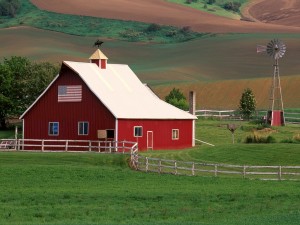 iving in a different country
iving in a different country - Living on a farm
- Living by the sea, in the mountain, in the countryside, in a city or even in an extreme climate
- Living in privileged surroundings (upper class, celebrity, successful businessman/woman) or a underprivileged ones (e.g. favelas, ghetto, slums)
The “living in a different country” scenario brings straight away the challenge of the language. The virtual reality simulation could therefore either be in the native language of the user or the language of the country “visited”. In the latter case, the simulation could be used as a language learning experience. From the point of view of wanting to achieve open-mindedness and better empathy, sticking to the native language of the user will bring more benefits. Using VR as a language learning or “virtual travel” tool is definitely beneficial, but the benefits brought are not the topic of this post.
Changing your environment can bring the following gains, among others:
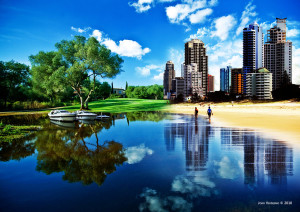 Appreciation of the beauty of nature or of an always active and entertaining city
Appreciation of the beauty of nature or of an always active and entertaining city- Understanding of different cultures, their roots and their impact in every day life
- What it means to grow your own food or buy it all in a shop
- Better understanding of the good and bad that money can bring
- What it is like to live in a brutal environment versus a peaceful one
Simulating different environments and all their complexities is certainly going to be a challenge for VR. Recreating physical environments, like mountains, the sea, a city are long endeavors, however they are “relatively” under control since virtual worlds have been built for games for many years now and experience can be drawn from them.
Capturing the subtleties of a culture would require natives of each country to contribute in building the virtual world representing their nation.
As for recreating a privileged or underprivileged environment, here as well it would require a variety of people having lived in these specific environments to build a good representation of what life is like in each situation.
For each scenario, building a complete virtual world, with each country represented, all their physical details, cultures, cities and wealthy and deprived neighborhoods would be a gigantic task. It could be built over time as businesses build parts of it that are bringing them benefits (think of TripAdvisor in VR). By piecing the parts together, a complete world can be built over time, a world that can bring many amazing life experiences to everyone.
Shorter term, simpler simulations covering just one of the scenarios listed above could be put together. They would still bring many benefits to society in general. An offline experience would be sufficient in that case, even though the benefits of online interactions could enhance the experience.
In summary, exploring new life environments is a big endeavor, that could bring massive improvements in empathy and more harmony in the world (I know it sounds a bit Utopian, but this is not a reason not to try). The full impact that VR experiences can bring in this area is hard to fathom, but the prospects are very exciting!
In the next post we will explore the exciting topic of time travel.



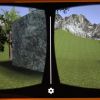

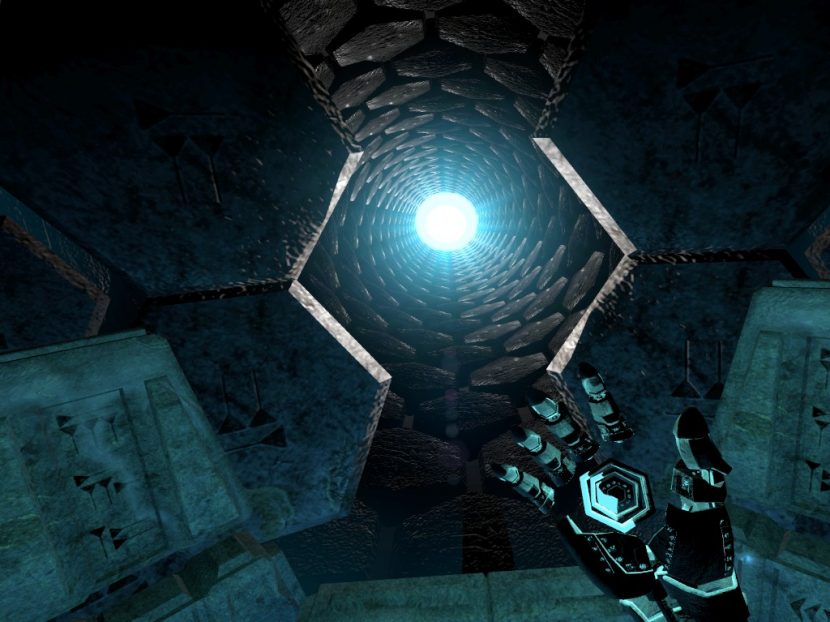
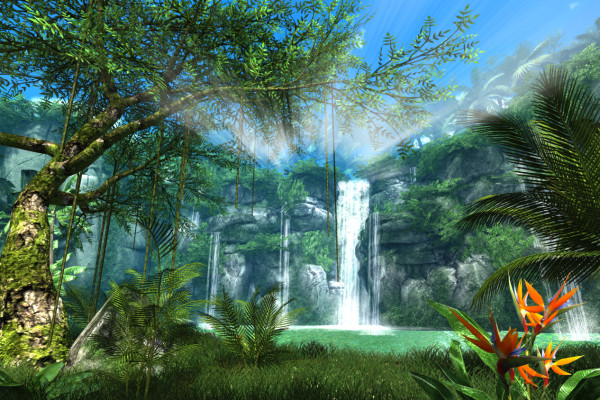
Please share your comments